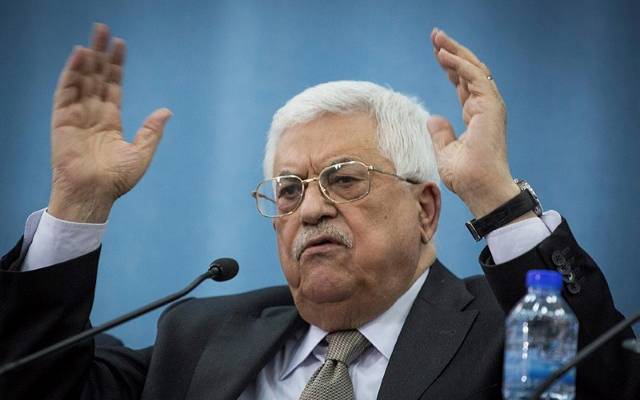All that is left for the Palestinians to do is envy Israel, which has a vibrant parliament where lawmakers, including Arab MPs, are free to express their views without fear.
By: Khaled Abu Toameh, The Gatestone Institute
Parliaments, among the strongest manifestations of a democracy, represent the electorate, enact laws and oversee the government through hearings and inquiries.
Apparently, this does not apply to the Palestinians, who, as a result of the power struggle between Palestinian Authority (PA) President Mahmoud Abbas’s ruling Fatah faction in the West Bank and Hamas in the Gaza Strip, have, for the past 11 years, been without a functioning parliament.
The Palestinian Authority’s unicameral legislature is the 132-member Palestinian Legislative Council (PLC). Both the PA and PLC were established after the signing of the Oslo Accord in 1993. The first Palestinian legislative election took place in January 1996. The second, and last, election took place in January 2006; it resulted in a victory for Hamas.
In 2007, Hamas violently seized control of the Gaza Strip and toppled the Palestinian Authority regime that was there. Since then, the Palestinian parliament has not been functioning properly, although Hamas legislators sometimes meet separately in the Gaza Strip. In the absence of a functioning parliament, Abbas has been passing laws by “presidential decree.” Several Palestinians have questioned their legality and accused the Palestinian leader of violating Palestinian Basic Law.
Abbas has effectively replaced the PLC as the sole lawmaker for the Palestinians. This situation has turned him into an autocratic and totalitarian president who makes decisions without being held accountable by anyone, including members of the Palestinian parliament.
Worse, Abbas has also been using his powers to punish those members of parliament who dare to criticize him or voice opposition to his policies. In 2016, for instance, Abbas stripped five “rebellious” legislators of their parliamentary immunity: Mohammed Dahlan, Shami al-Shami, Najaf Abu Bakr, Nasser Juma’ah and Jamal Tirawi.
“Abbas’s decision is in violation of the Palestinian Basic law, which calls for the separation of powers between the executive, legislative and judicial authorities,” commented Abu Bakr. “We respect the judicial system and the law. We reject any attempt to exploit the law to tamper with the judiciary.”
Abbas Not Comfortable at Home
Abbas, for his part, does not like the PLC because he knows that many of its Fatah and Hamas members are critical of him and his policies. As Abbas does not tolerate criticism particularly well, he doubtless feels more comfortable delivering speeches at international forums such as the United Nations, the European Parliament and his own Fatah and PLO institutions than at the Palestinian parliament. The others are places where no one takes him to task for his tyranny.
The PLO and Fatah institutions Abbas frequently addresses are dominated by his loyalists, many of whom are also on his payroll. Who needs a parliament when one has the PLO Executive Committee, the PLO Central Council and the Fatah Central Committee, whose members can be counted on blindly to back Abbas and his decisions? The three Palestinian bodies have, in fact, replaced the PLC as the key decision-making institutions of the Palestinians. However, the only decisions these bodies take are ones that fully support Abbas in everything he says and does.
In the absence of a parliament, the Palestinians have no address to express their grievances. They cannot write to or phone their elected legislators to complain about anything. All they can do is resort to social media, especially Facebook, to air their views. Even then, the Palestinians are not safe from the long arm of the Palestinian security forces. In the past few years, scores of Palestinians have been harassed, arrested and interrogated by Abbas’s security forces for posting critical comments on Facebook.
On October 14, Abbas loyalists took yet another step that will further undermine the Palestinians’ chances of ever becoming a free and democratic society that would include a functioning and vibrant parliament with an open debate. The Fatah Revolutionary Council, another significant body dominated by Abbas loyalists, recommended that the Palestinian president dissolve the PLC and prepare for general elections in the West Bank and Gaza Strip. This recommendation, by unelected Fatah officials against elected members of the Palestinian parliament, was seen both as undemocratic on legal and parliamentary grounds, and as undermining the Palestinians’ confidence in Abbas and the Palestinian leadership.
‘Dissolving President Abbas Himself’
Critics of Abbas and legal experts have condemned the Fatah recommendation to dissolve the Palestinian parliament. They argue that the move is not aimed at bringing reform and democracy, but to allow Abbas and Fatah to get rid of the PLC.
Hasan Khraisheh, a deputy speaker of the PLC, said that neither Abbas nor Fatah was authorized to dissolve the parliament. “The PLC was elected by the Palestinian people, and it can’t be dissolved by the Fatah Revolutionary Council, which was not elected by the people,” he argued. “Dissolving the parliament means dissolving the Palestinian Authority, which also means dissolving President Abbas himself.”
The latest move to dissolve the PLC is yet another attempt by Abbas to silence his critics and prevent an open debate among Palestinians about his policies. In the absence of a parliament, for example there is no debate about Abbas’s policy towards his rivals in Hamas or his relations with the US and Israel. His aides claim that the decision to dissolve the PLC is aimed at preparing for long overdue presidential and parliamentary elections. However, the continued power struggle between Abbas and Hamas makes it impossible to hold free and fair elections. The rival parties do not trust each other, so it is hard to see how, under the current circumstances, when they are at each other’s throats, they would ever agree to hold such elections.
For the past 11 years, because of the infighting between Hamas and Fatah and because of Abbas’s continued attempt to bypass and undermine the Palestinian legislators, the Palestinian parliament has been dying . Now, the Fatah recommendation to dissolve it completely has driven the final nail into the parliament’s coffin. By sidelining the PLC, Abbas and his loyalists have destroyed any dream the Palestinians ever had of having a functioning parliament.
By a stroke of fate, the Fatah move to dissolve the PLC came hours before the Israeli parliament, the Knesset, opened its winter session in Jerusalem.
All that is left, therefore, for the Palestinians to do is envy Israel, which has a vibrant parliament where lawmakers, including Arab MPs, are free to criticize and denounce Israeli government leaders and policies without fear of intimidation and retribution. For now, it seems the Palestinians will have to live with a dictatorship and autocratic leaders who are doing their utmost to deprive their people of democracy, transparency and accountability.
Khaled Abu Toameh, an award-winning journalist based in Jerusalem, is a Shillman Journalism Fellow at Gatestone Institute.
REBUILD ISRAELI FARMS DESTROYED BY HAMAS - PLANT TREES!
ISRAELI FARMERS DESPERATELY NEED YOUR YOUR HELP
Hamas tried to destroy everything. Terrorists murdered 1200 innocent Israelis. Join us in planting 12,000 trees of life to honor the victims. Send blessing to the People and Land of Israel.
“…I will ordain My blessing for you…” (Leviticus 25:4,21)
JOIN OUR CAMPAIGN TO PLANT 12,000 NEW FRUIT TREES ACROSS THE LAND OF ISRAEL!




